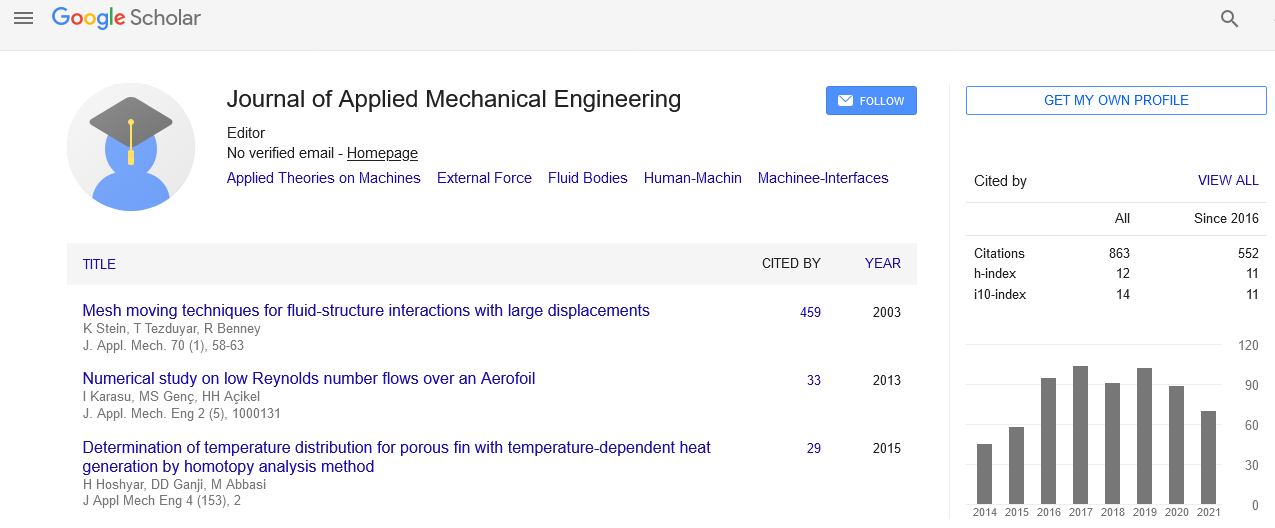Indexed In
- Genamics JournalSeek
- JournalTOCs
- CiteFactor
- RefSeek
- Hamdard University
- EBSCO A-Z
- OCLC- WorldCat
- Publons
- Google Scholar
Useful Links
Share This Page
Journal Flyer

Open Access Journals
- Agri and Aquaculture
- Biochemistry
- Bioinformatics & Systems Biology
- Business & Management
- Chemistry
- Clinical Sciences
- Engineering
- Food & Nutrition
- General Science
- Genetics & Molecular Biology
- Immunology & Microbiology
- Medical Sciences
- Neuroscience & Psychology
- Nursing & Health Care
- Pharmaceutical Sciences
Advanced mobility concepts for planetary rovers
Joint Event on 2nd International Conference on Advanced Robotics, Mechatronics and Artificial Intelligence & 3rd International Conference on Design & Production Engineering
December 03-04, 2018 | Valencia, Spain
Mini C Saaj
Surrey Space Centre – University of Surrey, UK
Posters & Accepted Abstracts: J Appl Mech Eng
Abstract:
Designing and operating a versatile mobility system for Martian or Lunar surface exploration rovers is significantly challenging compared to their off-road counterparts on the Earth. As evident from previous successful missions, wheeled planetary rovers continue to be the most trustworthy and space qualified mobility system to date. However, wheeled rovers do have inherent limitations, such as restricted traversability on rocky and steep terrains, cliffs and crevasses in addition to the danger of becoming permanently immobile due to hidden duricrusts etc. To minimise the risk of mission failures and to maximise the science return, future surface exploration missions need rovers with innovative and nature inspired locomotion capability to explore wider regions. In this talk, a suite of advanced mobility concepts for micro-rovers will be covered. More specifically, the performance of a self-balancing di-wheel rover and a star fish inspired omni-directional legged rover will be compared against a hybrid wheel-leg concept. The details of the engineering design and control mechanisms for each locomotion system will be presented. Further, the application of the hybrid wheel-leg rover as a soil sensor, whilst operating in tandem with a larger wheeled rover, will be addressed. These bioinspired micro-rovers are capable of operating independently or as scout rovers, in cooperation with traditional large wheeled rovers, for safer and faster exploration. Their diverse morphologies are of added value for planetary exploration missions not only in terms of improved accessibility to otherwise difficult regions but also as agents who could carry different payloads for in-situ science experimentations. The micro-rover designs covered in this presentation have their own merits and demerits. In comparison to their biological counterparts, these engineered systems are so far not very efficient in terms of movement and energy consumption. Moreover, nature???s biological means of control is far superior to artificial engineered approaches. Nonetheless, it is not too far away before a crew of such heterogeneous rovers, consisting of wheeled, legged and hybrid wheel-leg locomotion systems will start discovering the secrets of our neighbouring planets.
Biography :
E-mail: c.saaj@surrey.ac.uk

